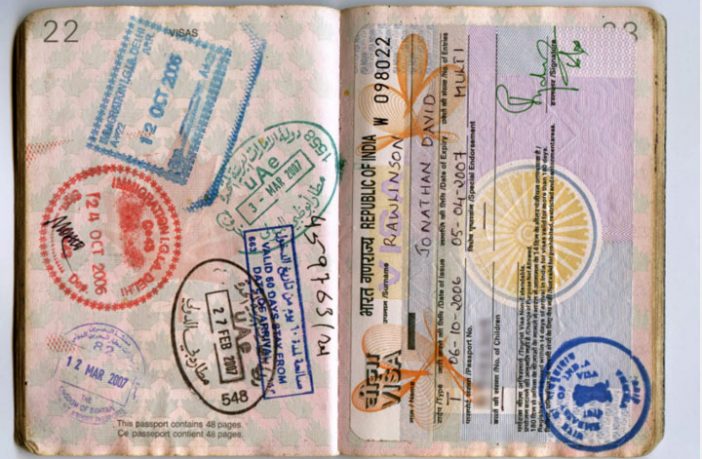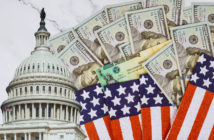A large share of the illegal immigrant population is due to foreigners who enter legally with visas and then do not leave. The Trump administration has begun to focus on this problem in addition to its focus on border control,
News reports indicate that the administration is considering sanctions against countries whose citizens are major contributors to the overstay problem. However, this misallocates responsibility for the problem. Those really responsible are those who issue visas to persons who are likely to stay illegally (State Department visa officers) and those who have the responsibility for enforcement of the immigration law in the interior of the country (Immigration and Customs Enforcement or ICE). Of course, the growing problem of local jurisdictions that condone, aid, and abet illegal immigration also exacerbates this problem.
A Department of Homeland Security (DHS) report released April 25 identifies the size of the visa scofflaw problem and the countries from which the most violators come. It should be no surprise that Brazilians and Indians are among the top source countries. President Obama announced in January 2012 “…[visa issuance]reforms are geared especially at helping visitors from Brazil and China get to the U.S. faster.” [2]
As a result of the Obama initiative, two new consulates were opened in Brazil, one was opened in China, and additional visa issuing staff were sent to the two countries to speed visa issuance. As a result, over the next two years, visa issuance to Chinese increased by 40 percent and visa issuance to Brazilians increased by 17 percent.
In the new data released by DHS, after neighbors Canada and Mexico, Brazil had the greatest number of visitors for tourism or business who did not depart when required (36,289 persons) and China had the highest number of student visa abusers (12,924) and sixth highest number of business and tourist visa abusers (18,314).
The experience with presidential meddling in visa policy suggests that a tightening of visa issuance policy managed by the Department of State offers a more effective means of reducing visa abuse than sanctioning foreign governments (although the latter is certainly warranted). It is also clear that much greater interior enforcement against visa scofflaws is needed, but that can succeed to the greatest extent if there it is accompanied by cooperative policies by state and local jurisdictions.





4 Comments
Speaking of visas, Trump’s son-in-law Jared Kushner is too big an advocate of expanded H1B visas that will allow tech companies to fire even more Americans and hire cheaper foreign workers. Kushner works hand in hand with people like the Koch brothers and the US Chamber of Commerce, extremely wealthy people who don’t give a rat’s a## about the American tech workers forced to train their replacements if they want a severance package. There are countless stories out there by laid off American workers who have sent out hundreds of resumes and follow-up letters and calls and hear nothing.
They get here and replace us for half wages permanently too..
Find all of them. Ban them for 10 years from coming back to America! As a result of the Obama initiative, two new consulates were opened in Brazil, one was opened in China, and additional visa issuing staff were sent to the two countries to speed visa issuance. As a result, over the next two years, visa issuance to Chinese increased by 40 percent and visa issuance to Brazilians increased by 17 percent.
Those really responsible are those who issue visas to persons who are likely to stay illegally (State Department visa officers) and those who have the responsibility for enforcement of the immigration law in the interior of the country (Immigration and Customs Enforcement or ICE). Of course, the growing problem of local jurisdictions that condone, aid, and abet illegal immigration also exacerbates this problem.